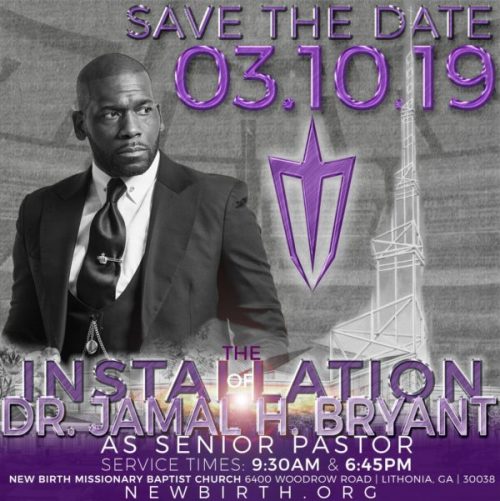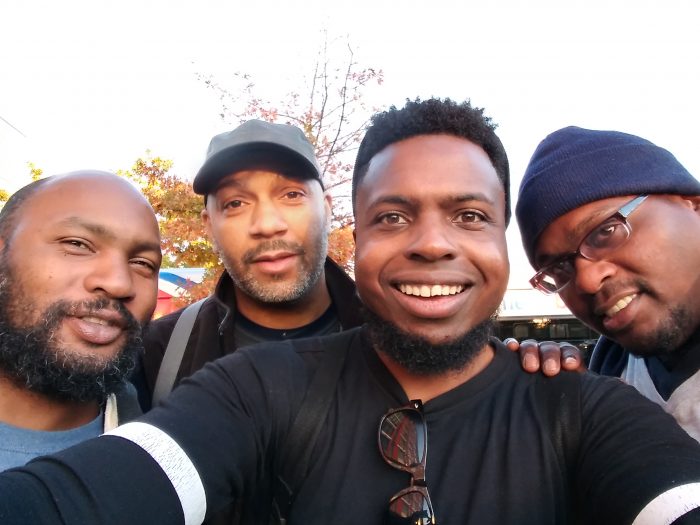
Hello World,
A year ago, former Pastor Jomo Kenyatta Johnson moved from Georgia to our nation’s capital to launch a dream he had been given by God — Church for Black Men. He had no idea that in creating Church for Black Men that he would be assaulted, lose his home and get sick. But that is what happened. Still, Johnson and Church for Black Men which is now Church for Black Men & Families are still here.
Johnson, a graduate of Westminster Theological Seminary, created Church for Black Men as he “discovered that only about 9% of Black males between the ages of 20-40 were connected with a Christian Church. Wanting to see this trend reversed he did a survey of Black men to discover the reasons they felt disconnected from both the mainline and African-American Church.” Through prayer he discerned that a “smaller informal model as found in the book of Acts would answer the problem of disconnect.” Church for Black Men & Families is hosted in Johnson’s home in Washington D.C. Prayerfully, Johnson, who works under the leadership of non-profit ministries Luke 10 and D.C. For Jesus, hopes to launch a movement of 1000 house churches in the Black community this year. Below is my interview with Johnson.
1. Why did you decide to change the name of Church for Black Men into Church for Black Men & Families?
If the man is broken, I have found that the family is broken so I wanted to incorporate the man and the family as well. We’ve had white people attend our church too and they are welcomed, but our mission is to focus on black men and families.
2. How were you assaulted as you founded Church for Black Men & Families?
I was staying with a friend, a fellow Christian, in D.C. who was going to help me start the church, but I learned he had other beliefs. He ended up physically attacking me and stealing my cell phone, but he was arrested and went to jail. I had a few cuts and a broken toe. My sister suggested that I come home, but the cause of Christ is greater than being assaulted. So I decided to stay…Since I didn’t have a job at that time and no place to stay in D.C., I ended up being homeless for a while and stayed in a homeless shelter. I also had a mini-stroke sometime later, but I saw it as a means of testing to not give up. I give praise to Jesus for setting an example of not giving up for the work of God.
3. What does a typical Sunday service look like? 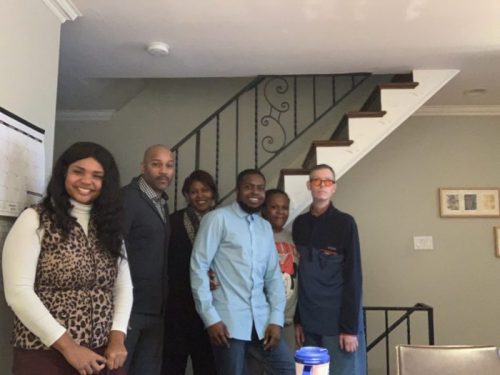
We average about five people every Sunday, and we can max out at 15. Once we get past 15, we will create another house church. We meet at 9 a.m. for breakfast. Then we pray and read a Scripture. Everyone is then encouraged to share how they are really doing and to be transparent. It’s a spiritual check-in. And we don’t give any feedback. In regular church, when people share what they are going through, people are quick to blast them with encouragement. We want to make sure that people feel that they have been heard. I’ve experienced men being transparent and sharing their heart in tears as we were vulnerable before God. The house church round table model allows Jesus to be the head of the meeting. We don’t preach sermons, study the Bible, sing praise songs, but we seek to hear from God and hear from one another.
We also meet at nearby library every Wednesday and also on Friday at a homeless shelter.
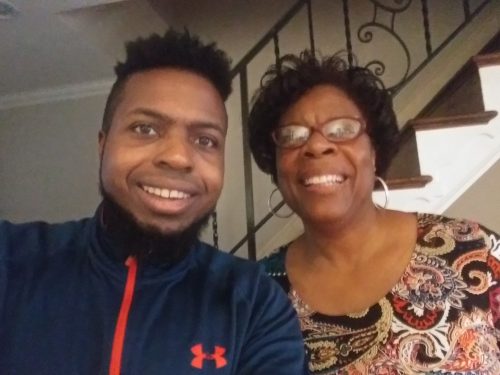 4. You refer yourself as a former pastor. Why?
4. You refer yourself as a former pastor. Why?
I am not a pastor of a traditional church. I don’t receive a salary, nor ask for offerings, nor do I focus on titles. I host men and families in my home and I disciple them. This is something everyone should be doing.
5. You told me that Church for Black Men & Families wants to launch 1000 churches in the black community this year. How do you plan to accomplish that goal?
We are offering free mental health services, employment assistance, and male mentorship to any person willing to allow us to host a weekly meeting in their home. Starting in March, we will reach 500 homes a week in D.C. with this offer. We also are praying that God will move on the hearts of Black Christians to free themselves from legalism by thinking they can only serve God by going to a Sunday service because some people will never go to a building for church. We are encouraging Black Christians to step out on faith and be wiling to open up their homes once a week for true intimacy, transparency, and communion with the risen Lord.
6. Considering what you went through when you first moved to D.C., how can home hosts ensure their safety?
Being saved is not safe. The Good Samaritan took a risk. We as black Christians have often failed when it comes to hospitality. The very thing that we think is our’s, our home, actually belongs to God. If we are to experience God’s grace, we have to take risks. We complain about drug dealers in our community but have you ever invited a drug dealer into your home?
But we do have safety procedures that are a part of our training. We provide free six-week training and will come to your city to help you launch a home church.
7. As you were assaulted, were homeless and suffered a mini-stroke, was it all worth it to launch this home church network?
It’s all for Jesus. Every tear, every pain, and every suffering for His sake is a blessing. I nor anyone else is worthy to suffer for so great a cause. I would do it 1000 times again.
For more information, go to blackmen.church.
Any thoughts?

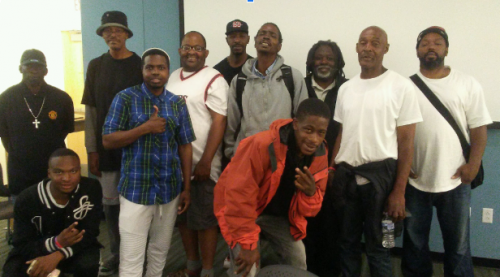
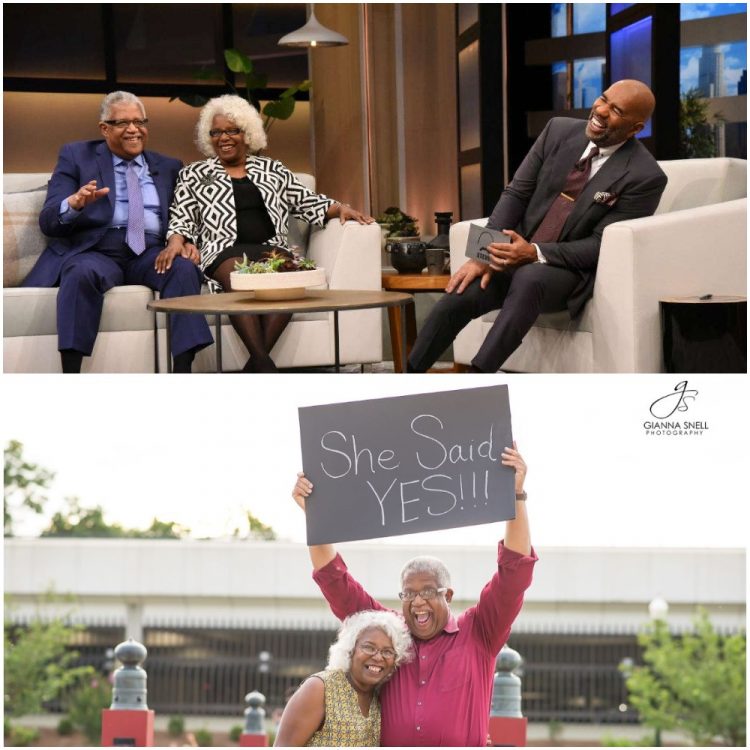
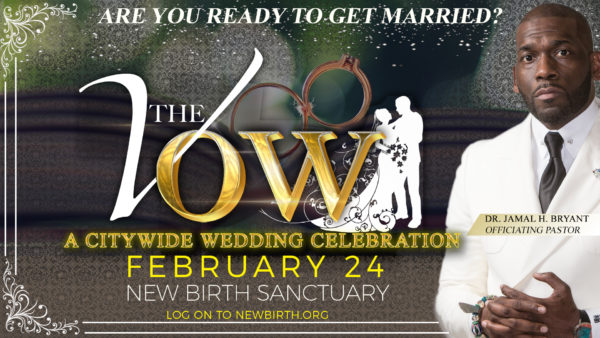 And if you find yourself engaged today and live in the metro Atlanta area, but don’t have the money to get married or other circumstances have prevented you and your love from tying the knot, New Birth Missionary Baptist Church is FREE City Wide Wedding during their 9:30 AM Worship Service on Sunday, Feb. 24! Now, pre-marital counseling is required for 2 sessions in their Multi-Purpose Room in order to obtain a Marriage Certificate from New Birth. And two sessions will be held THIS Saturday February 16 from 10:30 AM – 2:30 PM and THIS Sunday, February 17 12:30 PM – 3:00 PM! For more information, go to
And if you find yourself engaged today and live in the metro Atlanta area, but don’t have the money to get married or other circumstances have prevented you and your love from tying the knot, New Birth Missionary Baptist Church is FREE City Wide Wedding during their 9:30 AM Worship Service on Sunday, Feb. 24! Now, pre-marital counseling is required for 2 sessions in their Multi-Purpose Room in order to obtain a Marriage Certificate from New Birth. And two sessions will be held THIS Saturday February 16 from 10:30 AM – 2:30 PM and THIS Sunday, February 17 12:30 PM – 3:00 PM! For more information, go to 

